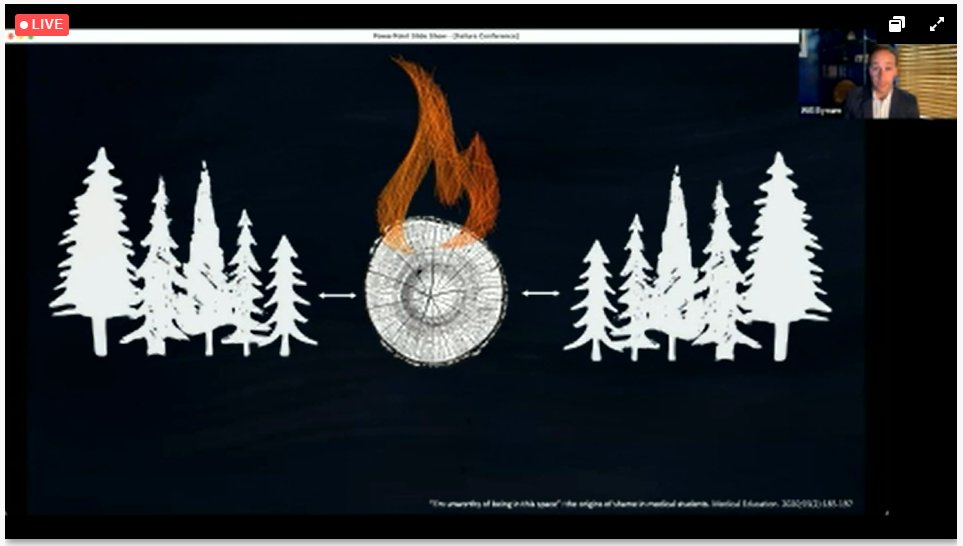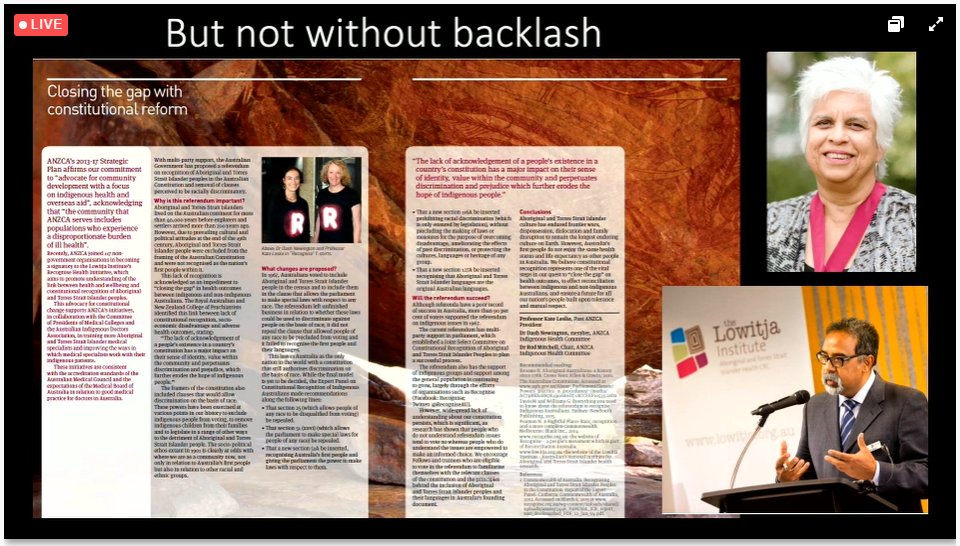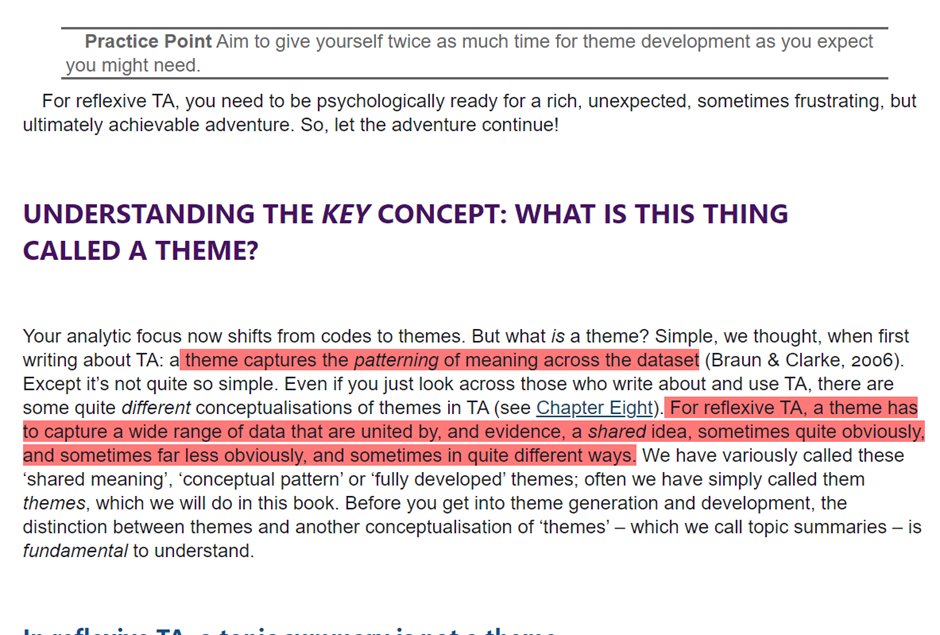#combisig21 talking about failure in research projects... but what is failure? How can you fail in research? Isn't research about improving our knowledge? Isn't a negative study actually a good thing but that we frame it in the wrong way?
"I roll with things pretty well" - I'm with you @DrDanSchumacher 

"Failure is part of life" @SaleemRazack
I think in medicine, we see death as a failure. But it's not. Death is also part of life.
I think in medicine, we see death as a failure. But it's not. Death is also part of life.

Did I just hear @sherbino quote Seneca? 🤣 

How do we normalise failure? Good question.
To fail is human - none of us is perfect. We recognise this in church. But I'm wondering where and when did the chase for perfection become pervasive in society? And in medicine?
To fail is human - none of us is perfect. We recognise this in church. But I'm wondering where and when did the chase for perfection become pervasive in society? And in medicine?
"Failure is only failure if you keep it to yourself"
Agreed. Keeping secrets festers. It is better to have transparency so you can get help.
Agreed. Keeping secrets festers. It is better to have transparency so you can get help.
"Failure is only a failure if you fail to learn"
I've seen plenty of this over my lifetime!
I've seen plenty of this over my lifetime!
"A failed project does not mean failed scholarship"
Reminds me of this tweet:
Reminds me of this tweet:
https://twitter.com/DrAndrewHuang/status/1221974900879036416?s=20
"A failed project does not make a failed scholar"
As above - if there such thing as a failed project? How do we define failure in Medicine?
As above - if there such thing as a failed project? How do we define failure in Medicine?
Failure CV - this is the second time I've heard about this in the #MedEd context.
I started mine.
I'll need to dig it out and update it.🤣
I started mine.
I'll need to dig it out and update it.🤣

The time, energy and emotional capital.
And we're not given the time to reflect TBH.
Other thoughts - Balint, Schon Reflective practitioner.
A lot of what is being talked about reminds me of Daring Greatly
And we're not given the time to reflect TBH.
Other thoughts - Balint, Schon Reflective practitioner.
A lot of what is being talked about reminds me of Daring Greatly

Shame as fire. Interesting metaphor.
When I think of fire, I think of a refining fire. Something that actually makes us better, and more pure.
I wonder how they are using the metaphor.
When I think of fire, I think of a refining fire. Something that actually makes us better, and more pure.
I wonder how they are using the metaphor.

Theory of self-conscious emotion. What does this theory say?
Negative event->two self-representations (now and future). Cognitive dissonance arises when we feel shame and guilt. Shame is about who we ARE, built is about what we've DONE.
Negative event->two self-representations (now and future). Cognitive dissonance arises when we feel shame and guilt. Shame is about who we ARE, built is about what we've DONE.

I can see now how my faith protects me from shame.
As a Christian, I know that I am not perfect: "We all have sinned and fall short of the glory of God" (Rom 3:23)
As a Christian, I know that I am not perfect: "We all have sinned and fall short of the glory of God" (Rom 3:23)

Hmm... missed the last 10 minutes through home interruptions!
Got to love lockdowns! 🤣
Got to love lockdowns! 🤣
Frames of reference. As a Christian, I know I'm not perfect, and that I'm redeemed through Christ.
But for non-Christians, how can you deal with these thoughts? Having missed the bits in between, I'll have to look up the paper.
But for non-Christians, how can you deal with these thoughts? Having missed the bits in between, I'll have to look up the paper.

This is from Google scholar. scholar.google.com/citations?user… 

Realistic expectations; adaptive perfectionist; #GrowthMindset 

The shame of the nation in failing Indigenous people.
I agree.
Also think that there is a great shame in the way Chinese Australians have been treated under the #whiteaustralia policy, but this is not at the front of Australia's consciousness. #EndRant
I agree.
Also think that there is a great shame in the way Chinese Australians have been treated under the #whiteaustralia policy, but this is not at the front of Australia's consciousness. #EndRant

FPM representation low.
On a personal level, I was trying to set up an outreach pain clinic to Healesville. (Historically this is where Coranderrk reservation is/was.)
Unfortunately, it's never got off the ground, and I'm leaving Eastern Health pain next month.😩
On a personal level, I was trying to set up an outreach pain clinic to Healesville. (Historically this is where Coranderrk reservation is/was.)
Unfortunately, it's never got off the ground, and I'm leaving Eastern Health pain next month.😩

A different pathway into medicine.
Study dentistry first in case you're not good enough for medicine. How does that work?
Study dentistry first in case you're not good enough for medicine. How does that work?

Backlash against advocacy.
The more I'm digging, and more I'm reading about race in Australia and around the world, the less surprised I am.🤷♂️
The more I'm digging, and more I'm reading about race in Australia and around the world, the less surprised I am.🤷♂️

• • •
Missing some Tweet in this thread? You can try to
force a refresh




















